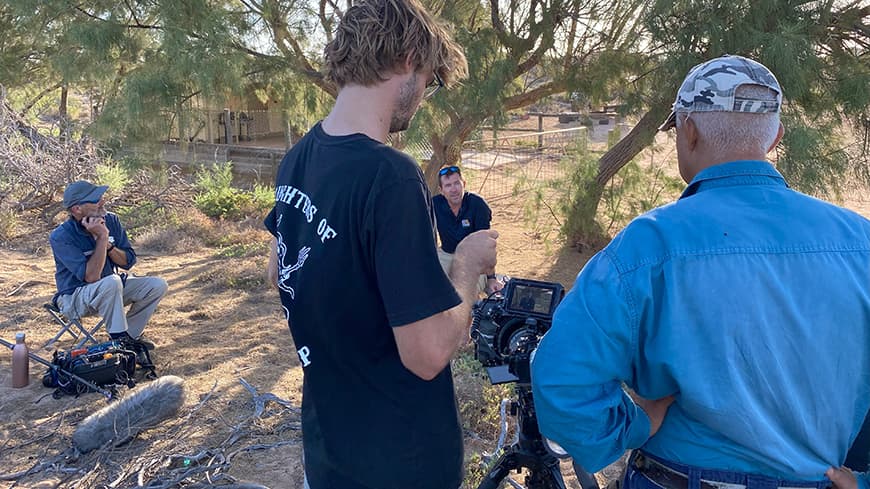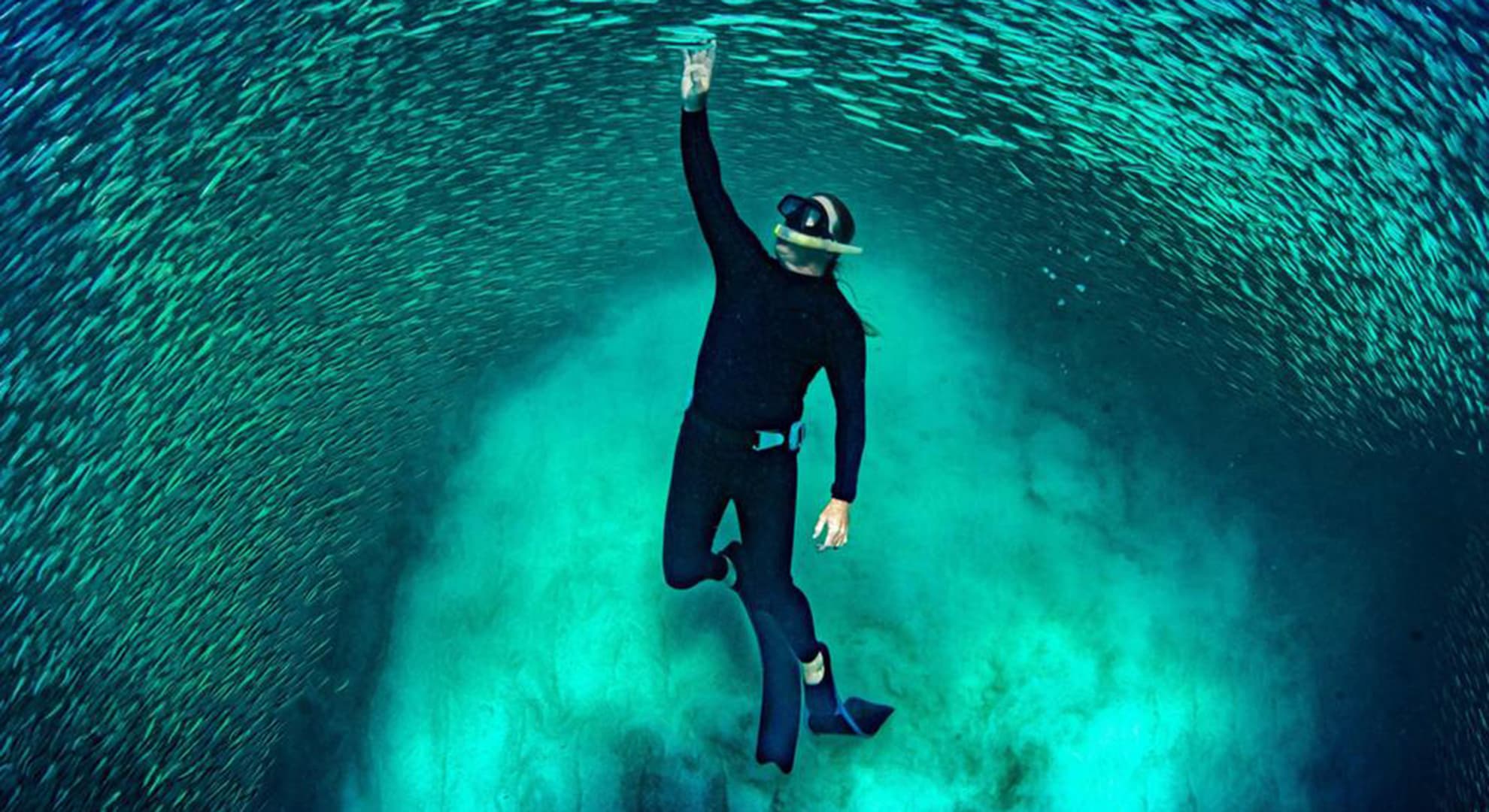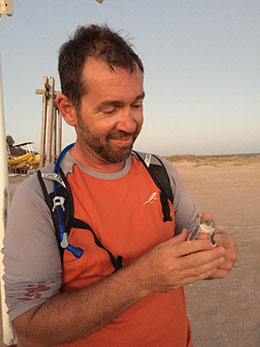 Ningaloo Nyinggulu is a captivating three-part ABC documentary series hosted by renowned author and activist Tim Winton.
Ningaloo Nyinggulu is a captivating three-part ABC documentary series hosted by renowned author and activist Tim Winton.
Western Australia's famous UNESCO-listed World Heritage Site is known to many as Ningaloo – but to First Nations Peoples, it's Nyinggulu.
The coastal area was highlighted recently with the ABC's Ningaloo Nyinggulu, a captivating three-part ABC documentary series hosted by renowned author and activist Tim Winton, which takes viewers on a journey to one of the last intact natural habitats left on earth.
Edith Cowan University (ECU) PhD candidate Casper Avenant was asked to take part in the production after Ningaloo Marine Park coordinator Peter Barnes put his research project forward to the series' producers from Artemis Media.
"My PhD research has focussed on predation of sea turtle eggs and hatchlings by a range of predators, but with a focus on ghost crabs," he said.
"I have developed a method that has enabled me to produce the most rigorous data ever produced on loggerhead hatchling predation, or that of any sea turtle.
"My results have provided the first realistic estimates of egg-to-surf survival of sea turtle young."
Mr Avenant's research was inspired by investigations into the threat to sea turtles by foxes made by Peter Mack, a retired school teacher and citizen scientist who in the 1990s and 2000s and the subsequent conservation work by the Gnaraloo Wilderness Foundation.
 Mr Avenant's research was inspired by a retired school teacher and citizen scientists sea turtle investigations in the 1990s and 2000s.
Mr Avenant's research was inspired by a retired school teacher and citizen scientists sea turtle investigations in the 1990s and 2000s.
Sea turtles - ancient mariners
Marine turtles have existed in the world's oceans for more than 100 million years.
Their populations have declined, with threats to their survival including fishing and tourism, predators such as foxes and pigs and climate change.
"I'm hoping that this exposure will shine some light on the plights of sea turtles, not just in Western Australia, but globally," Mr Avenant said.
"Rates of terrestrial predation of sea turtle hatchlings have potentially been underestimated globally.
"It's crucial to understand that sea turtles provide an important seasonal food source and that ghost crabs are important vectors for nutrient transfer on beaches."
Mr Avenant said while being involved in the documentary series is a career highlight to date, filming came with plenty of challenges.
"Certainly not an easy project to film, the nesting season is a vulnerable time for females, their eggs and emerging hatchlings," he said.
"We could only get the shots we needed by using red filtered light, so as not to unduly disturb nesting females at night, during mostly very dark and overcast conditions, with minimal moonlight."
In Western Australia, The Department of Biodiversity, Conservation and Attractions (DBCA) manages conservation of sea turtle populations
Community groups in Exmouth, Coral Bay, Wickham and Port Hedland also monitor turtle nesting beaches.
You can stream all three episodes of Ningaloo Nyinggulu anytime on ABC iview.

 Ningaloo Nyinggulu is a captivating three-part ABC documentary series hosted by renowned author and activist Tim Winton.
Ningaloo Nyinggulu is a captivating three-part ABC documentary series hosted by renowned author and activist Tim Winton.



